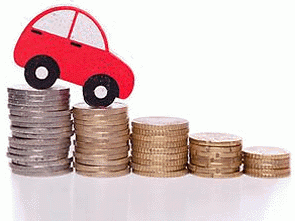
By John Grant
If you've recently applied for a car insurance quote, you'll probably know that car insurance can be both complicated and confusing.
And one of the more confusing choices you will need to make is - should you get a quote for agreed-value, or market-value?
If you look at our policy comparisons you will see that some companies offer only market-value and others only agreed-value, while some will do either leaving you to make the choice of the type of cover you want.
Market-value is the industry term for what your car would fetch on the open market, as is. It is not the trade-in value, nor what an unusual purchaser, such as a collector, would pay for your car. It's a true reflection of what the market would pay for that specific car in its current pre-accident condition.
Agreed-value on the other hand, is a sum insured that has been fixed after agreement between you and your insurer. All insurers have an upper limit about your car's worth, but below that you can probably reach an amicable agreement on its value.
But, if your car is damaged in a major way, "written off", or stolen, the difference between Market and Agreed values can become all too apparent.
Let's say you bought a two-year-old car for $20,000 (its new price was $35,000) and insured it for the Agreed Value of what you paid for the car, $20,000. If your car was stolen that year, your insurer will pay you $20,000, less your excess.
If you insured the exact same car for Market Value under the same scenario, the insurer is likely to pay out a lot less than your purchase price of $20,000. The reason is that depreciation will have changed the amount that the car was worth when it was lost.
The question to be addressed is would a Market Value figure be enough to replace your lost vehicle? By selecting a Market Value option, your premium will be calculated on the insurer's estimated value of the car and is likely therefore to be less than a fixed Agreed Value.
It is the insurer's job to be fully up-to-date with market values.
Your choices are these: a Market Value policy will give you a lower premium cost with the possiblility of a nasty surprise if you claim, whereas an Agreed Value policy will cost a bit more in premium, but will give you some certainty if you have to make a major claim.
If your car is unique in any way, an antique or classic car, or if it has some special features, then probably an Agreed Value policy will be the best choice as it gives certainty to the insured value for a vehicle that may otherwise present some difficulties in replacing should a loss arise.
If you are in any doubt then select an Agreed Value policy.
You are better to have certainty of value before a loss than to have the considerable hassle of trying to establish this after something has happened to the car. Insurers are never easy to argue with.
For later model cars where the value is simpler to determine, then either policy can provide similar outcomes. But the underlying issues remain, and get bigger the older your vehicle gets.
We welcome your comments below. If you are not already registered, please register to comment
Remember we welcome robust, respectful and insightful debate. We don't welcome abusive or defamatory comments and will de-register those repeatedly making such comments. Our current comment policy is here.